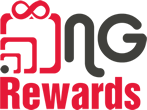Blog 30: Future
Always plan for the future. Strategise how you want to shape your brand in the long run, how you want to scale your company, and what legacy you want to leave behind. This is the job of business owners, aside from everyday duties, have.
The only way to impact the future is by working in the present. Showing up each and every day is the only way to ensure the control of your future. Of course, there are external forces that affect your situations, but at the end of the day, the way that you react and respond to them is what molds them. If you let a temporary situation keep you down, then you won’t attain the future you had set forth for. It’s important to be self-aware when you’re in this state. You want to be able to recognize and adjust accordingly.
Take your entrepreneurial journey one day at a time, but with your eye on the future. Think macro, and act micro.
